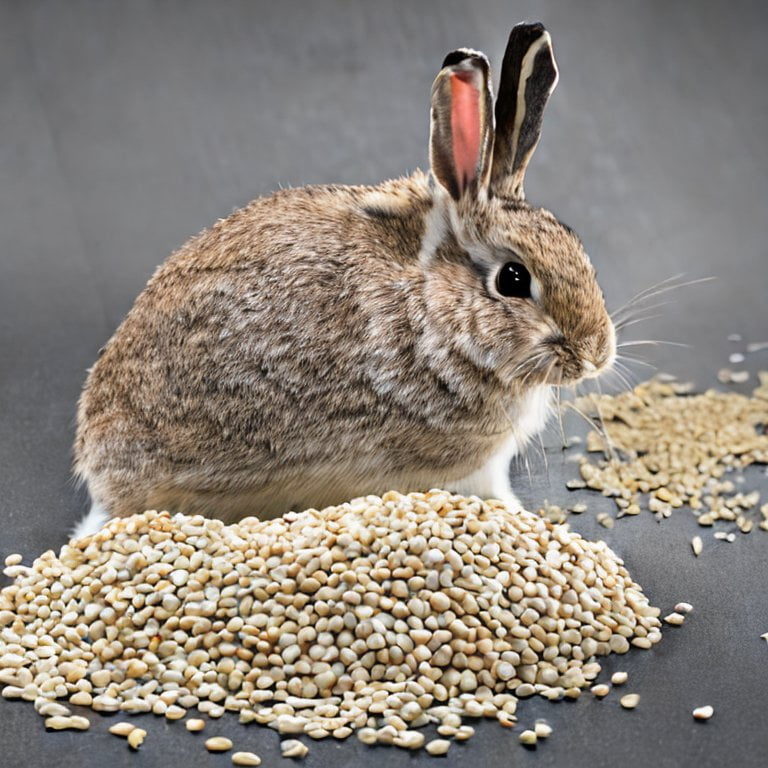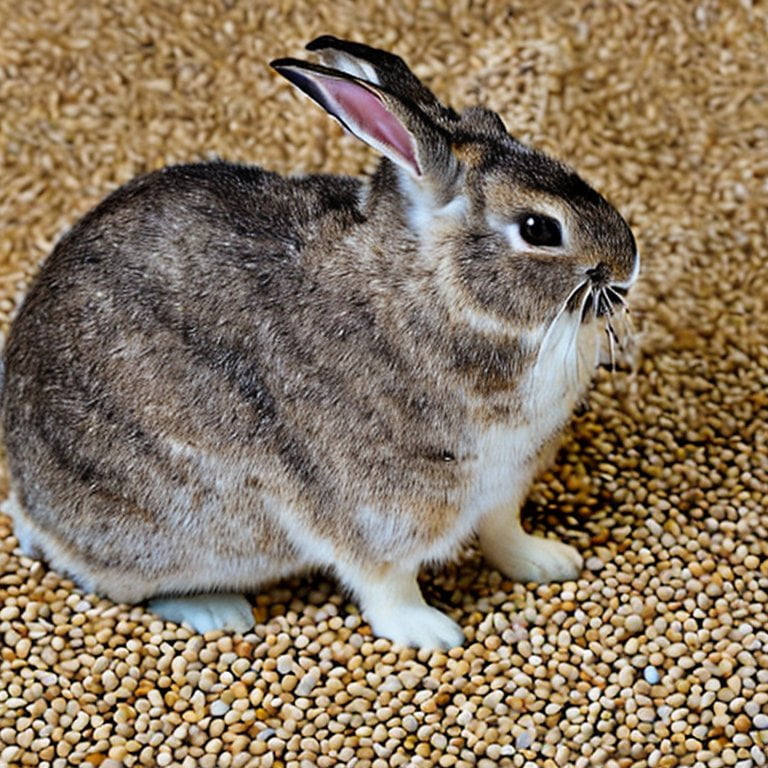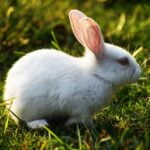
Rabbits are herbivores that feed primarily on hay, grass, and leafy vegetables. They require a diet that is high in fiber and low in fat and sugar to maintain good health. Many pet owners who keep rabbits as pets often wonder if it is safe to feed them sesame seeds. Sesame seeds are a popular ingredient in many foods, and their nutritional value is well known.
However, before feeding your rabbit sesame seeds, it is important to understand their nutritional value and potential health benefits and risks.
Can Rabbits Eat Sesame Seeds?
Sesame seeds are a good source of protein, healthy fats, fiber, and vitamins and minerals. They are commonly used in various cuisines, including Asian, Middle Eastern, and Mediterranean, as a seasoning or garnish for salads, sushi, bread, and other dishes. Sesame seeds come in different colors, including black, brown, and white, and they are often roasted or toasted to enhance their flavor and aroma.
While sesame seeds can be a nutritious addition to your own diet, can rabbits eat sesame seeds? The short answer is yes, rabbits can eat sesame seeds, but in moderation. Sesame seeds are safe for rabbits to eat, and they can provide some health benefits.

However, like all foods, sesame seeds should be fed in moderation, and you should consult with a veterinarian or a rabbit nutritionist before introducing them to your rabbit’s diet.
(See also Can Rabbits Eat Chia Seeds?)
Benefits of Sesame Seeds to Rabbits
Sesame seeds contain a variety of nutrients that can be beneficial to rabbits. They are a good source of protein, which is essential for maintaining muscle mass and growth. Protein also helps to support a healthy immune system and maintain healthy skin and coat. Additionally, sesame seeds contain healthy fats, including omega-3 and omega-6 fatty acids, which are essential for maintaining good heart health and reducing inflammation.
Sesame seeds are also a good source of fiber, which is important for rabbits. Fiber helps to maintain healthy digestion and prevent digestive problems such as constipation and diarrhea. Additionally, fiber helps to keep rabbits feeling full and satisfied, which can prevent overeating and obesity.
In terms of vitamins and minerals, sesame seeds are a good source of calcium, iron, magnesium, and zinc. Calcium is important for maintaining strong bones and teeth, while iron helps to support healthy blood flow and prevent anemia. Magnesium is essential for maintaining healthy nerve and muscle function, while zinc is important for maintaining a healthy immune system.
Precautions when Feeding Chia Seeds to Rabbits
While sesame seeds can provide some health benefits for rabbits, it is important to remember that they should be fed in moderation. Rabbits require a diet that is high in fiber and low in fat and sugar, and too much of any food, including sesame seeds, can be harmful to their health.
Feeding your rabbit too many sesame seeds can cause digestive problems, such as diarrhea or bloating. Additionally, sesame seeds are high in fat and calories, so feeding your rabbit too many can lead to obesity and other health problems.
When introducing sesame seeds to your rabbit’s diet, start with small amounts and gradually increase the amount over time. Monitor your rabbit’s digestion and overall health and consult with a veterinarian or a rabbit nutritionist if you have any concerns.
It is also important to choose high-quality sesame seeds that are free from additives, preservatives, or other harmful chemicals. You can purchase sesame seeds from a reputable source or from a health food store that specializes in organic and natural foods.
In addition to sesame seeds, there are many other healthy foods that you can feed your rabbit. Hay should make up the majority of your rabbit’s diet, and you can also offer fresh vegetables such as lettuce, spinach, carrots, and broccoli. Fresh fruit can also be given as a treat, but should be fed in moderation due to their high sugar content.
Final Thoughts
As we see, rabbits can eat sesame seeds in moderation, and they can provide some health benefits. Sesame seeds are a good source of protein, healthy fats, fiber, and vitamins and minerals. They can help to support a healthy immune system, maintain muscle mass and growth, and prevent digestive problems. However, it is important to remember that too much of any food, including sesame seeds, can be harmful to a rabbit’s health.
If you decide to feed your rabbit sesame seeds, make sure to do so in moderation and monitor their digestion and overall health. Consult with a veterinarian or a rabbit nutritionist if you have any concerns or questions about your rabbit’s diet.
In addition to a healthy diet, rabbits also require plenty of fresh water, exercise, and mental stimulation. Make sure that your rabbit has access to clean, fresh water at all times and provide them with opportunities to exercise and play. You can also provide your rabbit with toys and puzzles to keep their minds stimulated and prevent boredom.
Overall, rabbits can safely eat sesame seeds in moderation as part of a balanced diet. However, it is important to remember that every rabbit is unique, and their nutritional needs may vary.
Lance has been passionate about the plant-based diet and we have been following a whole food plant-based diet for over 5 years. We focus on health, natural healing, weight management, animal rights, and the health of the planet and environment by focusing on whole plant-based foods and sustainable practices.
Learn more at the About Me page and follow on social media at the links below.


